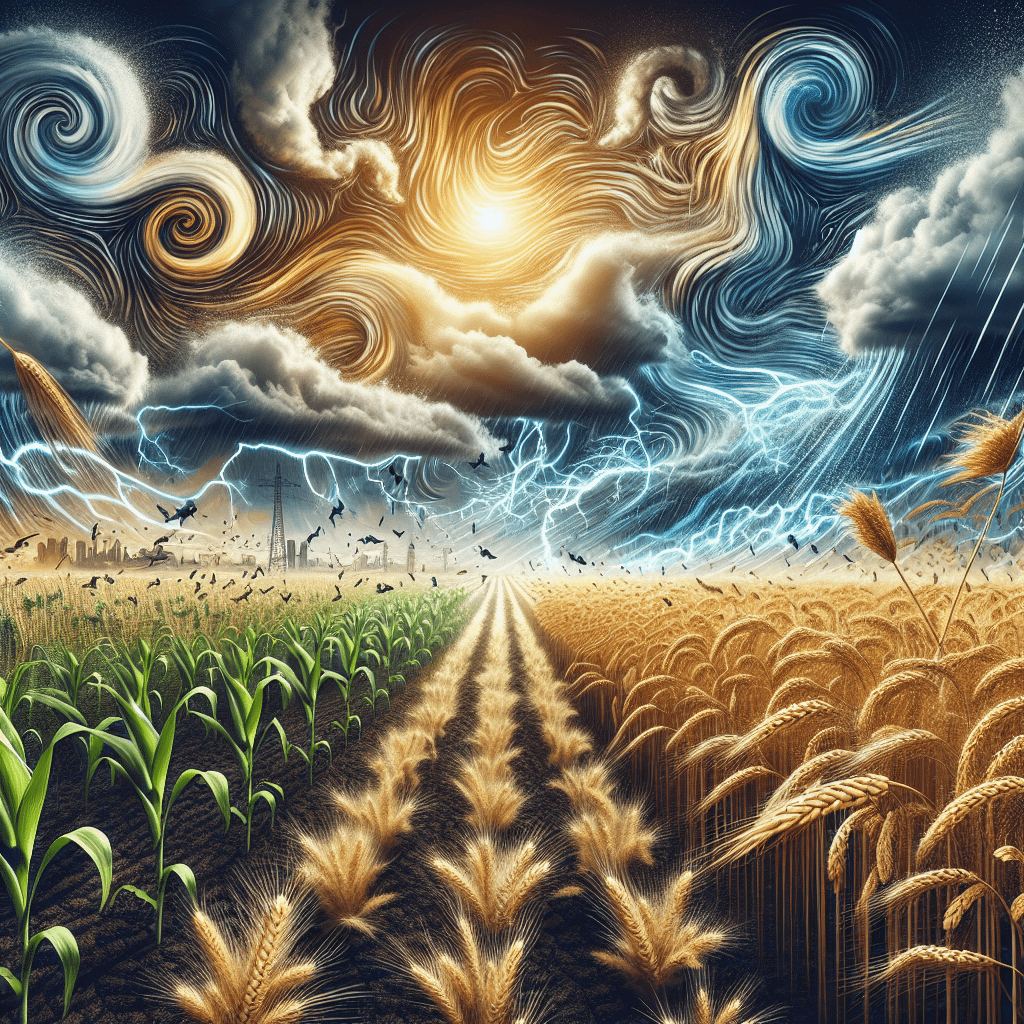Climate change is no longer a future threat — it is the reality we are now living in. The hustle and bustle of human activities has caused carbon dioxide (CO2) levels to surge in our atmosphere, triggering a notable increase in the global average surface temperature.This isn’t just an issue for scientists and environmentalists to address – climate change is something everyone needs to understand because it directly threatens our crops and food security.A recent study was carried out by a group of researchers at Banaras Hindu University (BHU) in India. Driven by concerns about the impact of environmental factors on global food security, the team set out to investigate this complex problem.The goal was to predict how climate variables influence the crop yields that feed our expanding population.The researchers didn’t just base their work on assumptions or approximations. Instead, they meticulously crafted a mathematical model to capture the nonlinear relationships between CO2, temperature, human population, and crop growth.Why the emphasis on “nonlinear” relationships? Because our natural world doesn’t play by straight-line rules. Complex and often chaotic, ecological systems dance in a pattern that’s more of a spiral than a straight line – another factor the researchers took into account when designing their model.“We’ve considered how the rising CO2 levels will initially boost crop growth through the ‘CO2 fertilization effect,’ but once temperatures exceed a critical threshold, the heat stress will reduce yields,” said A.K. Misra, one of the scientists on the project from BHU.“A non-autonomous system with seasonal variations reveals complex behaviors like periodic oscillations and chaos – and highlights the unpredictability of crop responses to rising temperatures.”While it’s true that an abundance of CO2 can initially boost crop growth, the broader picture isn’t as optimistic.As Misra mentioned, the challenge lies in the rising temperatures that accompany the elevation in atmospheric CO2 levels.So, while we might see a short-term win for crops, the long-term outlook is decidedly more concerning. The takeaway? We need to understand when to say “when” in terms of CO2 emissions.It turns out that individual crop varieties react differently to these changing climatic conditions.“Our findings reveal a critical threshold for anthropogenic CO2 emission, beyond which crop yield starts to decrease significantly. It depends on the cultivated crop varieties – different varieties exhibit varying responses, so the results may not apply uniformly across all crops,” Misra explained.However, it’s not all doom and gloom. The researchers also unveiled a promising strategy to combat these climate-change-induced crop losses – the development of crop varieties with higher temperature tolerance.By creating crops that can withstand warmer temperatures, farmers can better adapt to changing environmental conditions, thu

